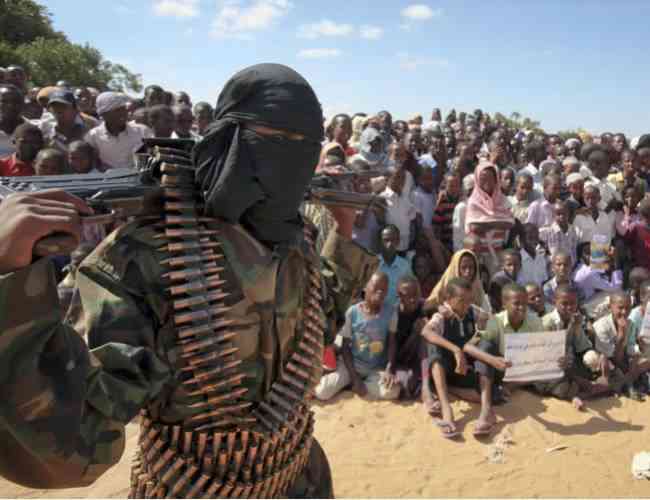×
The Standard e-Paper
Smart Minds Choose Us

In this Feb. 13, 2012 file photo, an armed member of the militant group al-Shabaab attends a rally in support of the merger of the Somali militant group al-Shabab with al-Qaida, on the outskirts of Mogadishu, Somalia. [AP]
Four African leaders on Wednesday resolved to jointly plan a decisive operational strategy against al-Shabab and mobilize regional support for timely, decisive operations against the extremists in Somalia.